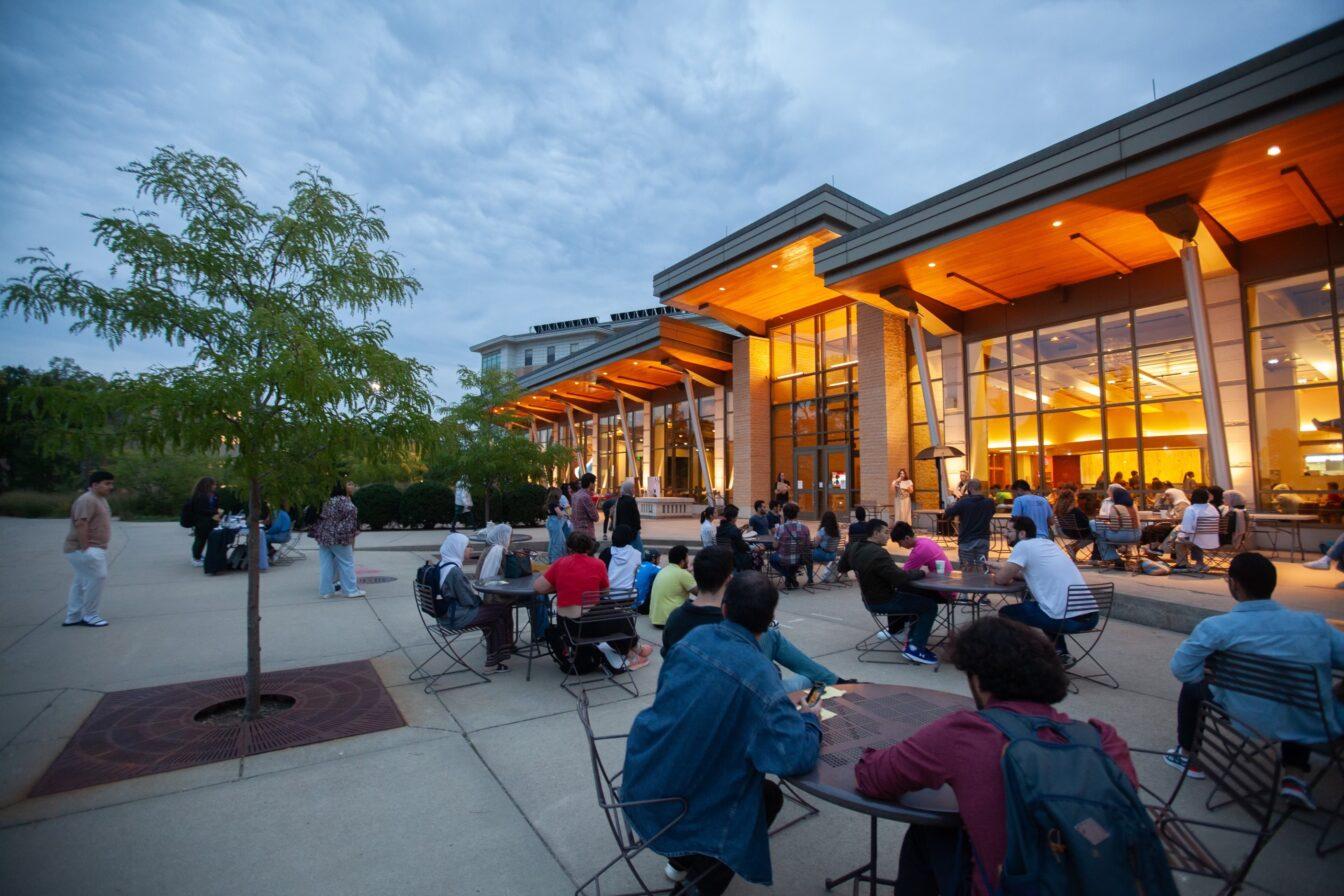During her first three years at the University of Wisconsin, Dana Tabaza saw the month of March marked as Middle East North African Heritage Month on university calendars. But when she searched around campus for events to celebrate her heritage, she found none.
“The acknowledgement and recognition of MENA Heritage Month [by UW] didn’t exactly come with action,” Tabaza said.
Tabaza’s observation emboldened her to shine light on the strong community of MENA students she knew existed on campus. As first steps for more MENA-centered university support, she advocated for the creation of a permanent MENA Cultural Programming Intern position, which she stepped into January 2023. With her co-chair Haruka Padilla, she created the MENA Collective — a group of 40 MENA-identifying student organization leaders responsible for planning the 2023 heritage month celebrations.
Now a senior, Tabaza said she has seen tangible progress for MENA students on campus. But she and assistant director in the Multicultural Student Center Noreen Siddiqui said more can be done for MENA students on campus. Tabaza and Siddiqui are working to create a position for a full-time staff member to support MENA students and establish a physical space dedicated to the community.
Reflective representation
Tabaza said Siddiqui, who does not identify as MENA, has been a generous supervisor for MENA students and has enabled them to have a voice at the table. But she said MENA students need a staff member who reflects them and can use their lived experience to help with specific accommodations and needs unique to MENA students.
The MSC is in the process of drafting next year’s budget proposal to include a full-time professional staff member to support MENA students. The staff member would supervise programming interns, put together monthly programming throughout the year and advise the MENA Collective.
“We have very few MENA faculty and no MENA-identifying administrative staff,” Tabaza said. “If MENA students have concerns about anything related to their identity, accommodation or something that happened in the classroom, they have no one to go to who has that identity. So when we’re building the infrastructure for MENA programming, it’s more than just the events. It’s creating that ecosystem of support for MENA students.”
A place for community
MENA students need a dedicated space now more than ever, according to Tabaza.
After nearly three months of war in Gaza, deaths have surpassed any Arab loss in wars with Israel in the past 40 years, according to the New York Times. At the time this article was published, over 21,991 Palestinians have been killed in the war in Gaza in the past 85 days, according to health officials in Gaza.
During the first weeks of the Israel-Hamas war, MENA students at UW gathered to mourn together wherever they could — in various rooms, buildings and houses around campus.
“People didn’t know where to go,” Tabaza, who is Palestinian-Jordanian, said. “At times like this, the only thing that can get you through is community. Having each other and just being in a space where you don’t need to explain or defend yourself and can just simply exist.”
Tabaza and Siddiqui have recently been working with other student organizations that serve MENA student populations to organize dinners and create processing spaces for MENA students. According to Siddiqui, many MENA students have not felt safe this semester and are reporting hate and bias incidents at higher rates than they have in the past.
Nationally, there has been a steep rise in reported anti-Arab and anti-Muslim bias incidents in the month after Oct. 7, according to the Council on American-Islamic Relations. CAIR received 1,283 requests for help and reports of bias over the 29-day period following the Oct. 7 attacks on Israel by Hamas, which led to retaliatory attacks in Gaza by Israel. In a normal 29-day period in 2022, the group received 406 complaints.
Tabaza said it is imperative to have a safe space of support.
“A place where, for once, your identity is not a reaction, it’s just who you are,” Tabaza said.
Siddiqui said there are no current plans in place to create a MENA student center, though it is a future goal once a full-time staff member is hired.
2024 MENA Heritage Month
Even without a dedicated space, MENA students made room for themselves last March. After months of efforts by Tabaza, other collective members and MSC staff to secure funding and raise awareness about the MENA community, UW celebrated MENA Heritage Month for the first time since 2018.
Over 800 people attended the nine Heritage Month events put on by the MENA collective. The events were themed “Through The Eyes Of MENA,” and centered safe space and feelings of home.
Tabaza said they are very excited to continue the momentum from last year during 2024 MENA Heritage Month. Around 20 members of the MENA Collective have already met to plan Heritage Month events, keeping in mind Ramadan — the holy month of fasting during the month of the Muslim calendar — will begin March 11.
Tabaza said more than a thousand UW students identify as MENA. But despite the strong community on campus, there is no option for MENA as a demographic option on admissions paperwork.
“They can choose ‘Other’, they can choose ‘African,’ they could choose ‘Asian’ or ‘white,” Siddiqui said. “There’s a large group that doesn’t feel their identity reflected.”
Siddiqui said not having this data point makes it harder to quantify and support the group.
Though April is nationally recognized as National Arab American Heritage Month, students at UW celebrate in March because April is Asian Pacific Islander Desi American Heritage Month at UW and each community has its own month of celebration.
Tabaza said she is proud UW recognizes how important MENA Heritage Month is to students.
“Gladly, the university is letting us have this [funding] because last year was proof enough that this was something important to us,” Tabaza said.


